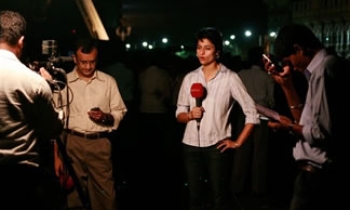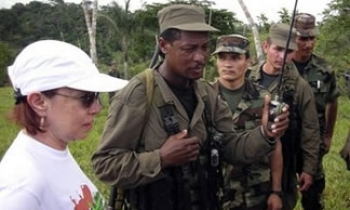AS part of efforts to create a massive network of information kiosks in 6 lakh villages in India by August 2007, the National Alliance on Mission 2007, aimed at ushering in ICT-led development in rural India, has outlined its plans to connect 2.4 lakh panchayats in the first phase.
"Village Knowledge Centre (VKCs) is one of the essential components for realising our goal of graduating into a knowledge society. I am sure that ultimately the National Alliance will be able to develop a user controlled, owned and managed network which will help to reach the rural population in terms of information, knowledge and skill empowerment.
"However that focus of these VKCs should be on creation of employment opportunities without which the knowledge centres would become ineffective," the President, Mr A.P.J. Abdul Kalam, said in his inaugural address at the second annual convention of the National Alliance here.
The National Alliance intends to create an information kiosk network that would connect village level communities to the Government functionaries or to the market. The overall objective of the initiative is to leverage technology to reach the rural communities and convert the knowledge receivers into knowledge creators, with emphasis on user-friendly connectivity, locally relevant content and low-cost affordable technology.
"These centres, to be set up and managed by ICT self-help Groups would empower the rural communities with relevant and timely information on weather, crop management, crop prices, education and health or welfare entitlements," Prof M.S. Swaminathan, Chairman of MS Swaminathan Research Foundation said.
The National Alliance on Mission 2007 - led by Prof Swaminathan and One World South Asia - was formalised in July 2004 to amalgamate the work of individual stakeholders in reaching out to rural India.
It currently has 150 members with representatives from Government, civil society, academia, media, national and international corporate sector and bilateral donors. It recommends a holistic information access-enabled development strategy for leveraging ICT.
The village knowledge centre is at the core if the ICT for rural development movement build around several other initiatives and programmes, such as self help groups, skill building, micro-credit, micro-enterprises, markets, literacy and education, agriculture, health, governance and entitlements.
"We envisage that an estimated Rs 1,500 crore would be required for the basic minimum equipment at all Village Knowledge Centres," Prof Swaminathan pointed out.
Speaking on the occasion, the Minister for Communications and IT, Mr Dayanidhi Maran, said that the ICT could be used effectively in the areas of high developmental priority such as education, agriculture and health.
"We are already seeing examples of the use of ICT in rural India like the e-choupal project of ITC, various distance learning programme like Akshaya in Kerala and a host of projects like e-Seva in Andhra Pradesh, which deliver a range of Government services to the public at large," Mr Maran added.
He said the initiatives would bring key information such as price of seeds, fertilisers and produce, appropriate use of pesticides for specific pests, fertiliser use and application and weather information, to the tips of farmers through Village Information centres.
Meanwhile, Microsoft Corporation India today rolled-out of the third round of funding under its Unlimited Potential program, as part of which it has announced a grant of Rs 10.64 crore to Nasscom Foundation and Rs 2.57 crore to Mahila SEWA Trust in cash and software over a 2 year-grant period.
The grant to Nasscom Foundation is aimed at setting up 65 Community Technology Learning Centres over 2-year period and providing IT skills training to 6,500 adults in strategic locations covering 65 districts in the States of Orissa, Kerala, West Bengal, Tamil Nadu, Andhra Pradesh and Karnataka.









